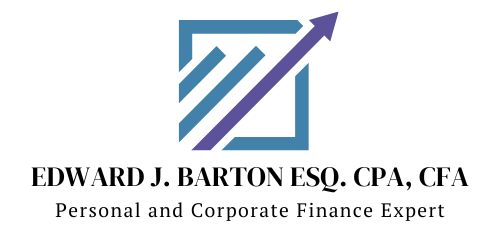The price you’ll pay for business growth lags behind the effect of cash flow. Managers and investors need to understand that increasing sales without expanding their accounts receivable isn’t a realistic scenario for revenue growth. In the real world, enjoying increased earnings without incurring additional costs is impossible.
What are prepaid expenses, and why are they essential to account for
Prepaid expenses are costs that have been incurred but have not yet been recorded in an organization’s financial statements. These expenses often cover insurance premiums, rent payments, or long-term contracts that must be paid upfront. Because they represent future expenditures, prepaid expenses are typically listed as liabilities on an organization’s balance sheet. This is important because it gives investors and other stakeholders a clear picture of the organization’s financial position at any given time. In addition, properly accounting for prepaid expenses can help to ensure that the company does not invest too much money upfront when spending may be more warranted in the future. Overall, prepaid expenses are essential to financial reporting, helping businesses effectively plan for their future needs and protect their bottom line.
How do you record prepaid expenses on your books?
There are several different ways to record prepaid expenses. Typically, companies will take the projected costs associated with future transactions and divide them by the duration of those transactions to calculate their estimated expense for each period. Once you have calculated your estimated expense per period, you can debit that amount to an account labeled “Prepaid Expenses” and credit it to a corresponding liability account labeled “Unearned Revenue.” In addition, some businesses may also choose to debit funds directly from cash sales to record their prepaid expenses on the books. Regardless of your method, keeping accurate records of your company’s prepayments is essential to ensure that your financial statements accurately reflect your current economic situation.
What are some common examples of prepaid expenses?
Prepaid expenses are a common type of expenditure for businesses and individuals alike. These expenses include insurance premiums, tuition payments, and advertising costs. They involve paying for goods or services in advance, expecting you to receive something of value in return at a future date. Generally speaking, prepaid expenses serve two primary purposes. First, they help to smooth out cash flow by allowing you to cover costs upfront while still ensuring that you have the funds available later on when the expenses are due. Second, they can offer tax advantages by allowing you to deduct particular types of expenses more quickly than possible. Overall, prepaid expenses play an important role in many different areas of our lives, and they can save us time and money in the process.
How should you handle changes in the estimated amount of a prepaid expense
When you first purchase a prepaid expense, it’s essential to estimate the amount you will need upfront. However, sometimes this estimate may turn out to be inaccurate, either due to changed circumstances or other market factors. In these cases, knowing how best to handle changes in the estimated amount of a prepaid expense can be difficult.
One strategy might be to extend the life of the prepaid expense, holding on to it for longer than initially planned. This might allow you more time to accrue savings and reduce overall costs. Alternatively, you could adjust your estimates based on the new information, recalculating the total cost and adjusting your payments accordingly. Ultimately, the best approach will depend on your unique situation and individual or business owner preferences. Regardless of how you approach changes in a prepaid expense calculation, it is always important to stay flexible and adaptable to manage any potential challenges that may arise over time successfully.
When should you recognize revenue associated with a prepaid expense?
There is no definitive answer to the question of when you should recognize revenue associated with a prepaid expense. Some factors that may be relevant include the type of prepaid expense, the terms of the contract related to the expense, and whether all conditions for revenue recognition are met. For example, suppose you have purchased a service subscription or other arrangement whose payments extend over multiple periods. In that case, it might be best to recognize revenue as each payment comes due. On the other hand, if your prepaid expense consists of a fixed amount paid at the beginning of an arrangement, such as when you prepay for a fixed supply of goods or services, then you may want to wait until all of the units covered by that payment are delivered before recognizing revenue. Ultimately, there is no universal rule on this issue – it will always depend on the specific circumstances of your business and your contracts. As such, it is essential to evaluate each situation carefully and consult with financial experts as needed to make an informed decision about when to recognize revenue associated with a prepaid expense.
What happens when a prepaid expense is fully used or expires
When a business has prepaid expenses, they are recorded on its balance sheet until they are fully used or expire. In general, there are two different ways in which a business can account for its prepaid expenses. On the one hand, it can simply debit the expense account and record the cost as an asset on the balance sheet until it is fully used or has expired. Alternatively, businesses can periodically revise their usage forecasts to reflect actual activity and reclassify part of the expense to revenue as that usage occurs. Ultimately, what happens when a business uses up all of its prepaid expenses depends on several factors, including the type of expense and how it was initially accounted for in the first place. However, in either case, this process represents a significant opportunity for businesses to reflect their financial position and performance more accurately over time.
Prepaid expenses are an essential part of accounting for small businesses. By understanding what prepaid expenses are, how to record them on your books, and when to recognize revenue associated with them, you can ensure that your business complies with Generally Accepted Accounting Principles (GAAP). Please get in touch with us if you have any questions about how to account for prepaid expenses or would like help implementing this method in your business. We’d be happy to show you how easy it is to start.
If you want an excellent introduction to accounting, I recommend Accounting for Non-Accountants by Wayne Label. It will provide the basics and give the information in plain and unambiguous language. Accounting is too critical to your business to ignore.


